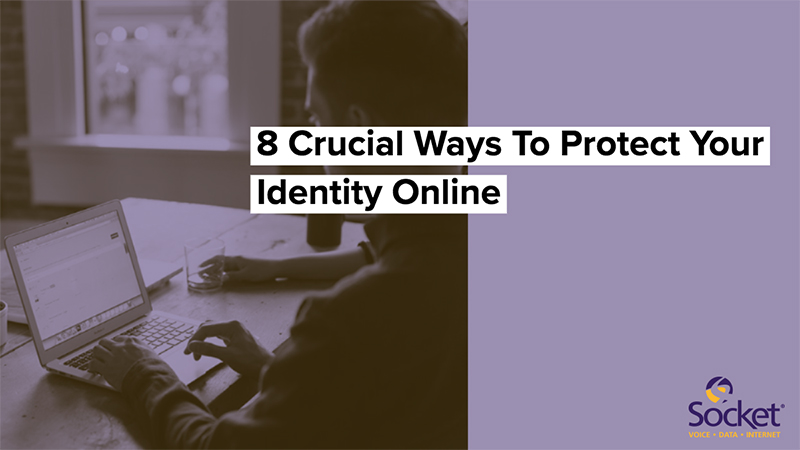Gone are the days where identity theft only occurs by leaving behind your wallet or forgetting to shred private documents. Now, the internet is the perfect hub for cyberthieves hunting for private information, and anyone can be the victim. Recovering from identity theft can be expensive, timely, and all around frustrating. Therefore, understanding how to protect your online identity is your first step to maintaining a peace of mind.
1. Invest in strong security software
Worms, viruses, and other forms of malware only make your computers and smartphones weaker and more susceptible to theft. Always make sure that your software is up to date and perform scans regularly.
2. Use strong passwords
Your username and password are the first gate blocking you from identity theft. Take that first line of defense very seriously. Instead of using the same password, or even a variation of it, start using password managers. They will help you generate and keep track of unique passwords for different accounts.
3. Watch your credit scores and reports
Staying in the dark definitely won’t help you. You should always know where your credit stands so that you can catch even the slightest change quickly. By law, you’re allowed a free annual credit report, so be sure to take full advantage of that.
4. Don’t overshare on social media
Yes, it’s fun to share with the world, but not only your closest friends and family are watching. In fact, people with social media have a 46% higher risk of identity fraud than people who don’t use social media. You might not think you’re giving out a lot of information, but when you add up where you work, the city you live, and other seemingly innocent facts, it becomes a complete identity that could be up for grabs.
5. Avoid using public Wi-Fi
Simply put, it’s not safe. Some don't use a passcode at all, which means it’s not secure. Even if there is a passcode, that code is usually given out to anyone who asks, and it might not be changed as regularly as it should.
6. Beware of phishing
Phishing is a way of scamming by pretending to be a trustworthy entity. Don’t fall in the trap of giving out personal information such as credit cards, social security numbers, usernames, and passwords. Always, always, always verify the source, even if they might seem legit.
7. Monitor your kid’s online behavior
Just because they are young, doesn’t mean they aren’t at risk. Kids make great targets for identity thieves. Unfortunately, 1.3 million children have their identities stolen every year, and a majority of them are under the age of six. Keep track of the websites your children visit and the people they interact with. For more information, check out this post.
8. Stay educated
One of the best ways to protect your identity is to understand new scammer techniques. The internet and technology are always evolving, and that means identity thieves are too. Knowing about things such as VoIP fraud, robocalls, and other attacks keeps you alert and on guard.


